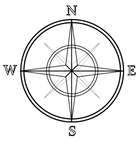The Most Influential
People in History

Seki Kowa
1642–1708
Japanese Mathematician
Mathematics Ranking 36th of 46

Seki Kowa on a Japanese stamp from 1992.
1
Seki Kowa was the father of the modern mathematical tradition in Japan, called Wasan, that was based on Chinese mathematics.(1)
Bio
His father, Naakira Utiyama, was a samurai. Details about his mother are unknown. For reasons that are not clear, the infant boy was soon adopted by another noble family. By the time Seki was five, his natural abilities with mathematics were so apparent that members of the household called him “divine child.” A servant in the household who was studying mathematics is believed to have begun Kowa’s formal education at 9. But accounts of this vary widely, and many scholars believe that Seki was largely self-taught. His library included the great works of Japanese and Chinese mathematicians, and he clearly built upon their methods.(2)
Seki founded a school of mathematics that became the most important one in Japan. As in the other schools, disciples had to keep the school methods secret, and only the best among them knew most of these methods. Only slowly did they publish their secrets, which hindered the free circulation of ideas–at this time, mathematics was widely practiced in Japan as a leisure activity–and which makes any attribution very difficult.(3)
Mathematics–Algebra
He wrote a work called Kai Fukudai no Ho (Methods of Solving Problems with Determinants, 1683) in which the concept of determinants and their expansion was first introduced and clearly described.(4) Determinants are tables of numbers in columns and rows that are used to solve simultaneous equations. Since his work certainly ante-dated that year, and since the first European statement of determinants was that of Leibniz in 1693, the credit for the advance must be given to Seki Kowa. His thought arose more from Chinese than from Western influences. The only surprising thing about the discovery is that it had not been stated much earlier, for example by the Chinese algebraists of the Sung dynasty.(5)
Footnotes:
(1) Robyn V. Young (editor), Notable Mathematicians: From Ancient Times To The Present (Detroit, 1998), pp. 436-437.
(2) Donald R. Franceschetti (editor), Biographical Encyclopedia of Mathematicians (New York, 1999), p. 436.
(3) Encyclopaedia Britannica, Macropaedia, Volume 23, 1993, 15th Edition, p. 596.
(4) David Poole, Linear Algebra - A Modern Introduction, 4th edition (Stamford, 2015), p. 280.
(5) Joseph Needham, Science and Civilization in China, Volume 3 – Mathematics and the Sciences of the Heavens and the Earth (Cambridge, 1959), p. 117.